“In the current global landscape, cultural diversity and the arts play a pivotal role in fostering understanding, empathy, and creativity”, says Professor Zhongwen Chen. “With the challenges we face, the need for a nuanced and comprehensive approach to education is more critical than ever.” As the Coordinator of the UNITWIN Network for Higher Education in the Performing Arts (China), whose passion is performing arts as Deputy Director of the International Theatre Institute, Prof Chen is one of the many UNESCO Chairs from UNESCO’s university cooperation programme, UNITWIN who contributed to developing the new UNESCO Framework for Culture and Arts Education, recently adopted at the World Conference on Culture and Arts Education (13-15 February 2024).
Chairholder for the UNESCO Chair on Arts, Education and Culture of Peace (Colombia), Prof Gloria Patricia Zapata Restrepo, brought into the international dialogue for the WCCAE her experiences studying the rich cultural expressions and artistic education, particularly for social cohesion in a country that has been ravaged by internal conflict. For her, it is an important step that the new framework brings together arts and culture education, unlike its predecessors (particularly the Road Map for Arts Education, adopted in Lisbon in 2006, and the Seoul Agenda: Goals for the Development of Arts Education, in 2010.) “For us arts and culture are so important,” she says, “specifically when we are thinking about cultural diversity and identity, and how people express themselves through their own traditions – you have to think about culture and arts.”
Whilst Professor Jorissen, current Coordinator for the UNITWIN Arts Education Research for Cultural Diversity and Sustainable Development, praises the Seoul Agenda for creating international communities and international networks, particularly between the Global South and the Global North, he sees the WCCAE as an opportunity to expand the concept beyond a western-centric style of education that focuses mainly on the individual, often in ways that disconnect them from communities and societies. He argues that in Germany, incorporating traditional instruments from Turkey in artistic education reflecting the large Turkish migrant population, would be a good idea for fostering social cohesion in the country. He is part of a national advisory board on the use of intangible cultural heritage in culture and arts education for the German government.
A new framework: New horizons for UNESCO Chairs
The adoption of the new Framework for Culture and Arts Education provides an extra tool and a reinforced structure for the work of the UNESCO Chairs in advocating for more research and policies on this issue.
The effects of emerging digital technologies on aesthetics and perception one of the key research areas for Professor Benjamin Jörissen, who is Chairholder for the UNESCO Chair in Digital Culture and Arts in Education (Germany). For him values and cultures were - largely speaking - previously shaped by local aesthetics but digitalization is disrupting patterns of intergenerational transmission of cultures. He and his colleagues are embarking on a project to build a generative AI programme for the purposes of cultural and arts education that does not replicate the cultural and values biases of the major companies. His project will be developed with teachers to be adapted to the needs of the classroom and aligned with pedagogical outcomes. He believes that digital technologies hold promises for creating new forms of aesthetics that shape perceptions and aid harmonious relations. He has been advocating for a “positive rethinking of digitality by means of arts and arts education”, citing an example discovered through Canadian partners of the UNITWIN Programme of the Iñupiaq Indigenous community which designed a computer game based on their traditional practices and values.
Peacebuilding through culture and arts education is the central focus for Prof Zapata, whose research brought her into contact with artists from the Revolutionary Armed Forces of Colombia (FARC) guerilla group before the Peace Agreement of 2016. “It was a bit shocking, because when you think about somebody that has been in the mountains, fighting for years, you think about them as soldiers and somebody who is really, really dangerous,” she says. “But when you see them as an artist, you find common ground.” Through the UNITWIN programme, she feels that the Colombian experience of using culture and arts education as a conduit to social cohesion has contributed to the international dialogue.
Intangible cultural heritage is a key question for Professor Chen and the UNITWIN Network “as it is precious and a key question for our members is how we make it live, as it does not belong in the past or in a museum – it is relevant to life now.” Some partners look to learn from classical western theatre training, whilst increasingly, partners in the west are looking to draw upon their intangible cultural heritage as dynamic forms of expression, in the same way that for example, Chinese qigong physical techniques or Indian traditional drums.
UNESCO’s university cooperation programme – “opening doors”
The UNITWIN Network Professor Chen coordinates brings together 56 partners: Some are UNESCO Chairs from different regions officially part of the UNESCO programme, others are teacher training institutes and other partners. Not only do the partners hold frequent seminars to exchange theory about culture and arts education, she and her counterparts hold regular international festivals to put into these into practice. The relationship with UNESCO is also important though: “being a chair, being in this network is a privilege. But it's not just about to holding a title: you have a concrete work to do and to feedback to UNESCO”.
For Prof. Zapata, becoming a UNESCO Chair gave her and her colleagues a different perspective in part because the values embedded in the Sustainable Development Agenda guides their work “to think about sustainability, peacebuilding and quality education”. She says that when working on an issue from a national perspective “sometimes you have a very narrow focus. But when you are UNESCO Chair, you extend your perspective and that so, so important.” Being Chairholder enriched her insights when invited to be part of a national committee convened by the Ministries of Education and Culture to design a national policy for culture and arts education – she had deep knowledge of culture and arts education policies from other countries, which she could bring into the conversation.
“It is really wonderful to have the UNESCO Chairs because they are door openers,” opines Prof Jorissen. He says that he is no longer just “some guy from a German university” but that the UNESCO Chair designation builds “bridges of trust” between academic researchers working on the same issues and that he can count on other members of the Network to share their knowledge. He also appreciates that the UNITWIN network has been really important over the past ten years in thinking of education in more interconnected way, even in planetary terms, as “we are all facing different challenges but we are all interconnected: the problems of others are our problems nowadays. Arts and culture are needed to build up trust. It is absolutely necessary to find many colleagues and people to talk with and to see different perspectives.”








 User Center
User Center My Training Class
My Training Class Feedback
Feedback












Comments
Something to say?
Login or Sign up for free